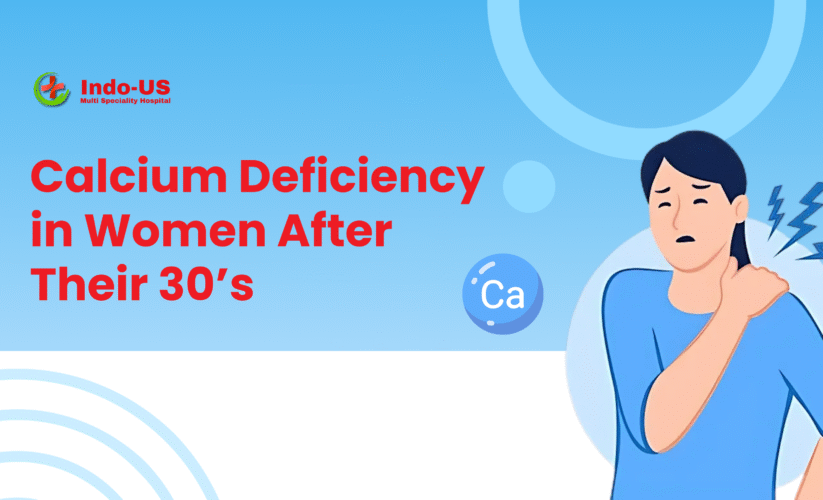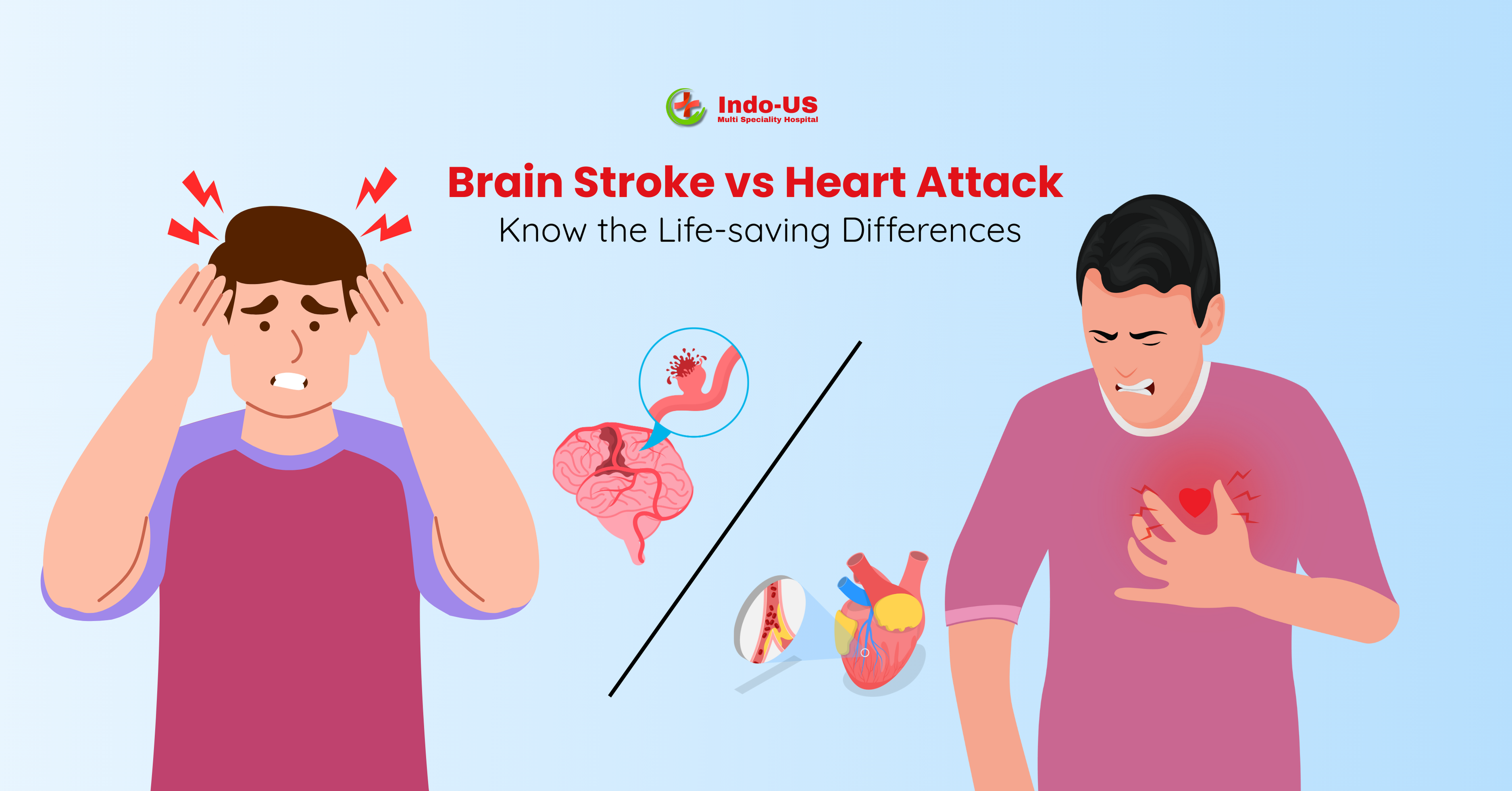Calcium Deficiency in Women After Their 30’s
By Najam Us Saher

Calcium deficiency is a common but often overlooked issue in women, especially after the age of 30. It can silently lead to serious health issues, including osteoporosis, bone fractures, dental problems, and even heart complications. By eating a balanced diet rich in calcium, staying active, and seeking timely medical care, you can protect your bones and overall health.
If you experience persistent muscle cramps, bone pain, fatigue, dental problems, or frequent fractures, don’t ignore these signs. Early diagnosis and treatment of calcium deficiency can prevent long-term complications like osteoporosis and fractures.
At Indo US Multi Speciality Hospital, we believe that understanding the causes, symptoms, and solutions for calcium deficiency can empower women to take charge of their health and prevent serious complications.
What is Calcium Deficiency and Why Does It Matter?
Calcium deficiency, also known as hypocalcemia, is a condition where the body does not have enough calcium to support its vital functions. Calcium is essential for strong bones and teeth, muscle contraction, nerve signalling, and blood clotting. When your body doesn’t get enough calcium from your diet, it starts drawing calcium from your bones, leading to bone calcium deficiency and a host of other health problems.
What causes calcium deficiency in women?
1. Hormonal Changes
One major calcium deficiency cause in women is hormonal shifts. After the age of 30, during pregnancy and especially after menopause, estrogen levels fluctuate. Estrogen helps the body absorb calcium and maintain bone density. When estrogen decreases, women lose bone mass faster, increasing their risk for calcium deficiency disease such as osteoporosis.
2. Dietary and Lifestyle Factors
Many women develop calcium deficiency problems due to:
- Lactose intolerance or avoiding dairy
- Vegetarian or vegan diets lacking in calcium-rich foods
- Sedentary lifestyle, smoking, or excessive alcohol and caffeine intake
- Vitamin D deficiency, which reduces calcium absorption
3. Medical Conditions
Certain health conditions, such as thyroid or kidney disorders, intestinal absorption problems, or prolonged use of certain medications, can also lead to calcium insufficiency.
How to identify if you are low on calcium?
Calcium deficiency often develops silently, with no obvious symptoms at first. Over time, however, low calcium symptoms can affect many parts of the body:
- Muscle problems: Cramps, aches, spasms, pain in the thighs and arms, numbness and tingling in hands and feet
- Bone pain and weakness: Early bone calcium deficiency can cause osteopenia, which, if untreated, progresses to osteoporosis, making bones fragile and prone to fractures
- Dental issues: Tooth decay, weak roots, toothaches, and brittle teeth as the body pulls calcium from teeth
- Fatigue and tiredness: Chronic fatigue, sluggishness, and lack of focus
- Brittle nails and hair loss: Nails become weak and break easily; hair may become dull or fall out
- Mental health changes: Mood swings, depression, anxiety, and brain fog
- Heart problems: Severe calcium depletion symptoms can include irregular heartbeat (arrhythmia) and, in rare cases, seizures or convulsions
Calcium Deficiency Diseases and Conditions
Calcium deficiency can lead to several health conditions, including:
- Osteopenia: Early stage of bone loss, not severe enough to be osteoporosis
- Osteoporosis: Advanced bone calcium deficiency disease, causing fragile bones and increased fracture risk
- Osteomalacia: Softening of bones in adults due to calcium or vitamin D deficiency
- Rickets: Weak and deformed bones in children, also due to insufficient calcium and vitamin D
Include these food products in your diet, if you are calcium deficit
Diet plays a major role in preventing and treating calcium deficiency in women. The best diet for calcium deficiency includes:
- Dairy products
- Leafy greens
- Nuts and seeds
- Fish
- Vitamin D sources
Follow these lifestyle tips to maintain good bone health
- Exercise regularly: Activities like walking, yoga, and strength training help maintain bone density
- Limit caffeine, salt, and alcohol: These can increase calcium loss from the body
- Avoid smoking: Smoking accelerates bone loss
- Get sunlight: 15–20 minutes of morning sun helps your body make vitamin D, which is crucial for calcium absorption
Diagnosis and treatment for calcium deficiency at Indo US Hospitals
At Indo US Multi Speciality Hospital, we offer:
- Advanced diagnostics for calcium deficiency conditions
- Personalized diet and lifestyle plans for calcium insufficiency
- Expert care for bone calcium deficiency, osteoporosis, and related diseases
If you have concerns about calcium deficiency or want to know more about the best diet for calcium deficiency, book a consultation with our experts at Indo US Multi Speciality Hospital.
Take charge of your bone health today-your future self will thank you.






